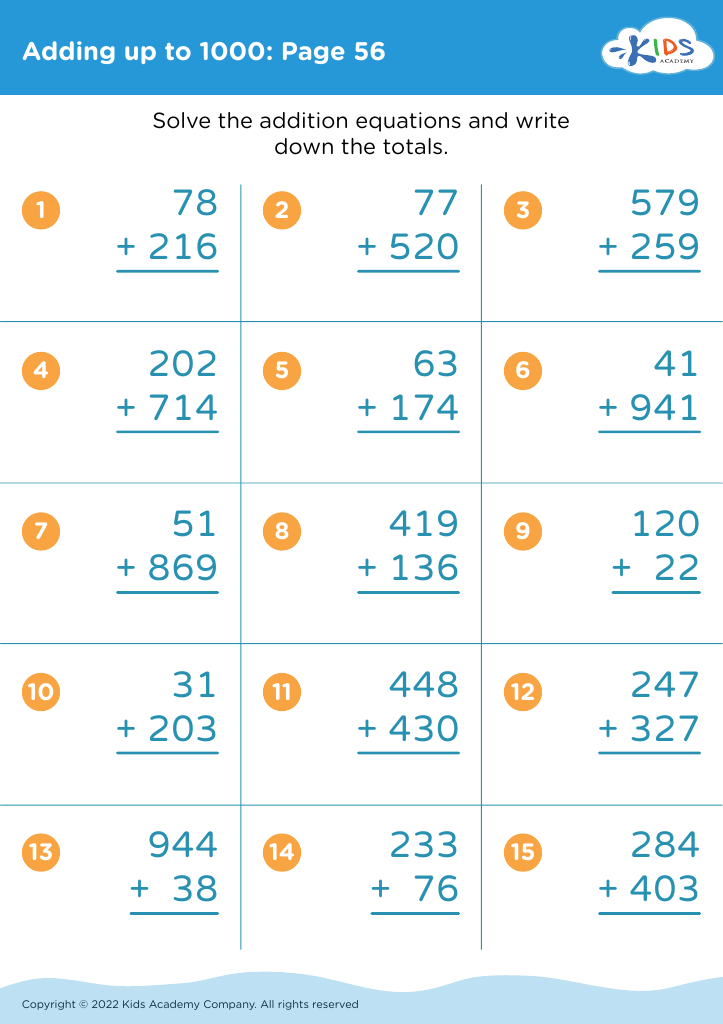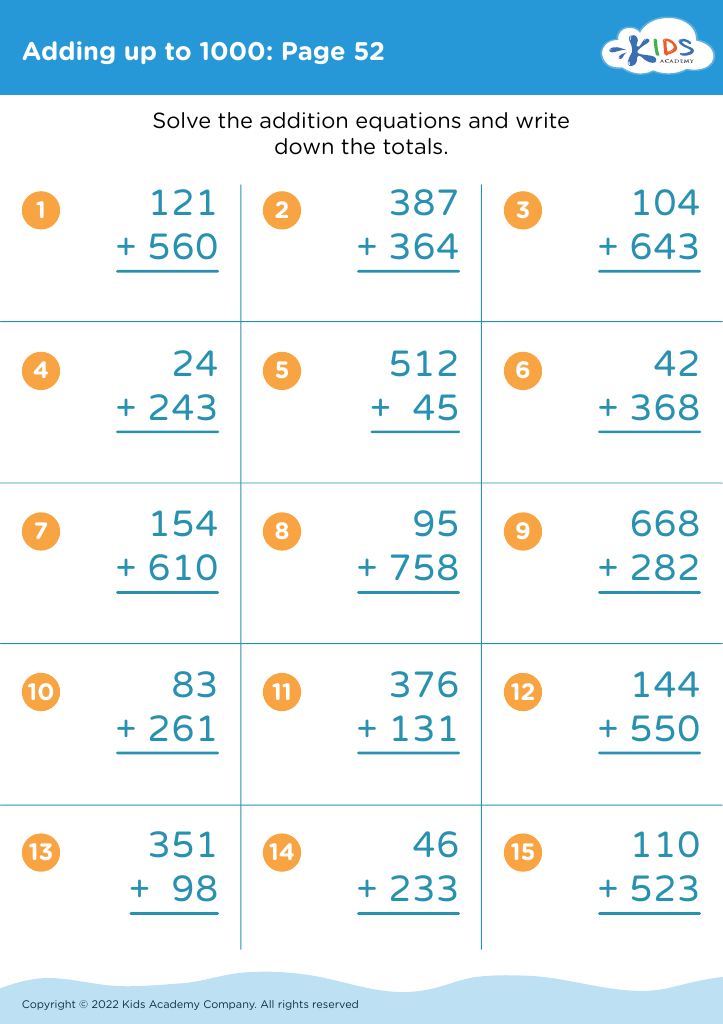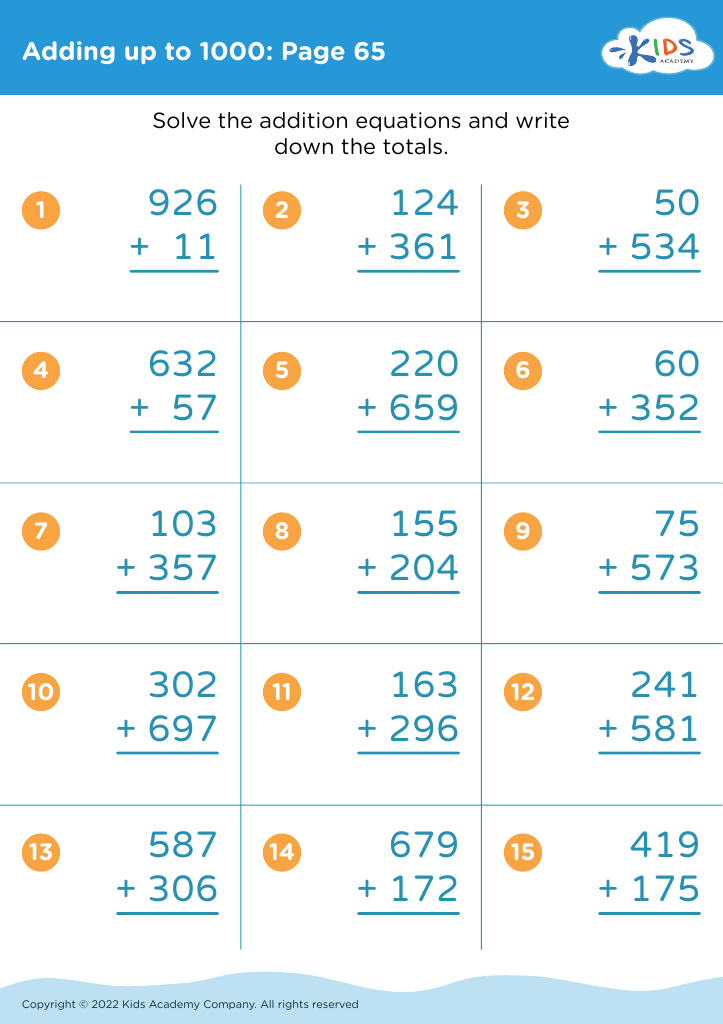Mathematical reasoning Adding up to 1000 Misc Worksheets for Ages 5-9
5 filtered results
-
From - To
Welcome to our “Mathematical Reasoning: Adding Up to 1000” worksheet collection designed for children ages 5-9. These engaging and diverse worksheets aim to strengthen young learners' mathematical reasoning skills while making addition practice enjoyable. Your child will explore various blend activities, puzzles, and scenarios that encourage critical thinking as they hone their ability to confidently approach addition problems up to 1000. With vibrant visuals and age-appropriate challenges, these resources make learning math exciting and interactive. Perfect for home or classroom use, these worksheets are crafted to support the development of essential math skills, ensuring a strong foundation for future learning.
Mathematical reasoning is a fundamental skill that lays the foundation for problem-solving and critical thinking in young learners. For children aged 5-9, learning to add up to 1000 incorporates not just arithmetic, but a deeper understanding of number relationships, place value, and mathematical concepts. This skill helps students develop confidence in their ability to tackle challenges and fosters a growth mindset.
Parents and teachers should care about mathematical reasoning because it promotes cognitive development. As children engage with various strategies to reach a sum of 1000, they learn to approach problems from different angles, enhancing their analytical skills. Furthermore, this understanding helps in real-life applications like budgeting and measurement, making math relevant and engaging.
Building strong mathematical reasoning in early education is vital because it sets children up for success in more advanced math concepts in later grades. This early foundation can spark a lifelong interest in math and science-related fields. Encouraging mathematical discourse at home or in the classroom fuels curiosity and creativity, making learning enjoyable. In essence, nurturing these skills leads to well-rounded individuals capable of making informed decisions and solving complex problems in the future.





















